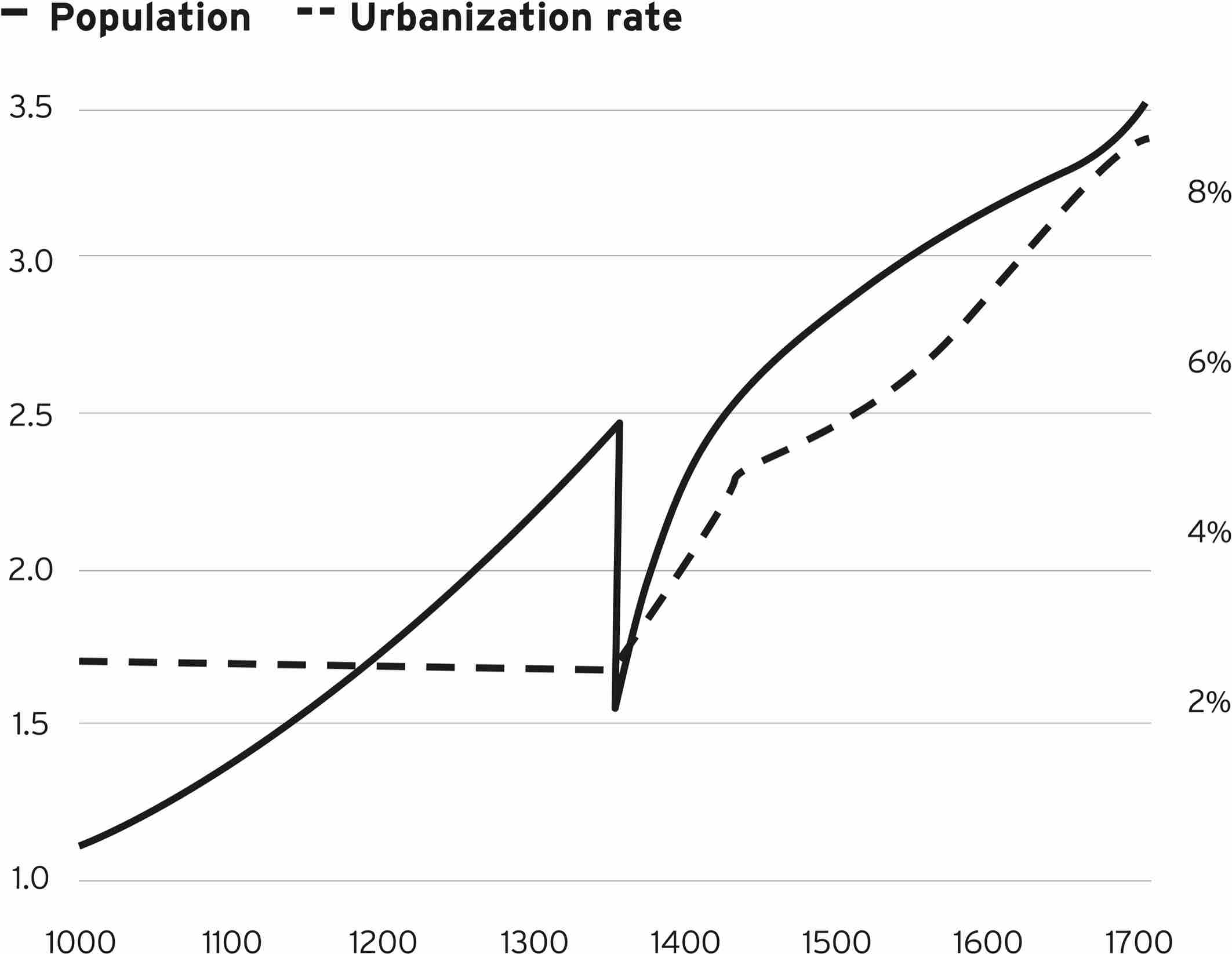Crises Trigger Growth
Human history is a history of crises. The challenges we face today highlight how much we stand to lose. There have been far darker times, but light always returns. When it does, it illuminates new opportunities, paths forward once barred by entrenched interests or outdated thinking.
This has held true even in some of humanity’s worst moments. The Black Plague, a bubonic epidemic in fourteenth-century Europe, killed more than 25 million people—at least one-third the population—in just four years. But even the Black Plague had a silver lining. The reduced population led to a higher per-capita income and a shift toward urban living, which created an outsized demand for discretionary urban products. This forced cities to grow in size, and eventually tuned up Europe’s long dormant economic engine, which would sputter to life over the next century. The authors of a study of this phenomenon dubbed plague, war, and urbanization “the three horsemen of riches,” because they jump-start urban growth and economic activity over the long term.
77

Effect of the Black Death on European Urbanization Rates
Population indexed to the year 1000

Source: “The Three Horsemen of Riches: Plague, War, and Urbanization in Early Modern Europe,” Voigtländer and Voth, November 2009.
Note: Population and urbanization numbers are estimates.